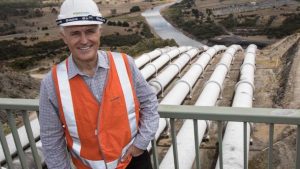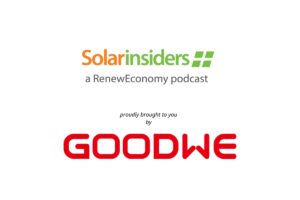My recent article – Victory at hand for the climate movement – touched a nerve, triggering more reaction than I’ve had for a long while. Opinions were strong wherever it ran around the world and my inbox was flooded with feedback. Many appreciated the optimism and saw new insights into the overall picture they’d so far missed. Others thought I was just wrong – that the momentum behind fossil fuels was so great we weren’t even close to turning the carbon ship around.
What struck me most, though, was how differently people interpreted the same signals, suggesting widely varying views on how the shift to a carbon-free energy system would occur. Here, though, I want to draw out one particular angle, a core assumption behind my views: how this will play out in the market.
One of the strongest grounds on which people disagreed with my conclusions was the scale of investment and growth in the fossil fuels industry. Huge new projects are underway or planned in coal, oil and gas and given such projects can have a production life of decades, surely they argued, the idea of ending fossil fuel use in a few decades is just not possible. After all, if we are turning a corner, wouldn’t such investments be in decline, rather than growing?
My answer is, not necessarily. I think many of these projects will fail and investors will simply lose their money – the argument behind the carbon bubble.
The nature of bubbles is denial of obvious risks: everyone else is jumping in, so any concerns you have must be wrong, and you’d better not miss out. Then at some point a critical risk threshold is breached and the bubble bursts.
In the case of carbon, most investors are still piling in assuming nothing will change; ignoring the clear, rational evidence of the significant risk in carbon assets, especially coal. Let’s take a look at these risks.
Looking forward over the lifetime of such assets, there’s really only two likely outcomes. The first is that we keep investing in coal and the planet warms by 4-6°C and as a result the economy melts down. That is well explained in this World Bank report, which explains why such warming must not be allowed to occur.
The second possible outcome is that the world acts strongly to reduce emissions, in which case even with the modest goal of giving us just a 50 per cent chance of not crossing the agreed 2°C threshold, two-thirds of proven reserves of coal, oil and gas can never be burnt, with the loss of income for the coal industry estimated at around $1 trillion per year by 2030.
The point is, there is little likelihood of the world economy growing smoothly to 2030 – the underlying assumption behind forecasts of future coal, oil and gas investments.
So the bubble will burst, we just don’t know when. When it does, money will flow away from fossil fuels and instead be invested in the alternatives, thus driving a self-reinforcing decline in the former and growth in the latter. It won’t happen overnight, but once it starts the process will drive itself.
It is important to understand this is now much more likely than the generally assumed process of a global political agreement being the key driver of stronger policy. There will certainly be stronger policy in various countries, but it will not be consistent nor globally aligned, except that it will generally undermine prospects for fossil fuels.
The best example we have of this is German policy on solar feed-in tariffs having driven large-scale Chinese production and dramatic global price reductions. This made rooftop solar competitive with retail prices in many countries – including, interestingly, places without strong policy, like the United States. This, in turn, is now causing upheaval in the utility sectors in countries like Germany, the US and Australia.
The price drops also contributed to the bankruptcy of a major Chinese solar company, Suntech, and its takeover by the local government. Keep an eye out for measures in China to boost domestic solar consumption in order to protect the tens of thousands of jobs involved and further reinforce China’s low-carbon transition.
This is all a great example of what we can expect in policy-triggered, but market-driven change – chaotic, unpredictable and dramatic impacts on businesses and consumers. While this makes it a tough space for investors, the prize of success is so great that the march to a low-carbon economy will continue. It is the essence of how markets work and the current shake out is a sign of a maturing industry.
The impact of all this is that many people are so busy looking at politics for signs of change, they’re missing the signs in the market. Of course policy is essential, as we’ve seen in its impact on solar. But the point of policy is to drive markets to deliver solutions and the signs are this process, while messy, is well underway. Meanwhile, that carbon bubble just keeps getting larger.






